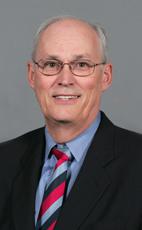Mr. Speaker, I have had the opportunity to give this more thought over the break and I want to start by reviewing the facts as I see them, as it is always good to start from a factual basis. The question of privilege is centred on some mail-outs from the Bloc members to government seats in the province of Quebec. This has certainly caused a lot of anguish to those government members, but I would like to go through what is in the mail-out. It highlights key passages from the Gomery report, which I think is fair. It brings home some facts to people in the key findings of the commissioner. It includes photographs of some of the key government members opposite.
What kinds of messages were left with those constituents in Quebec? One of them was that money was given to Liberal friendly organizations for doing virtually nothing. Millions and millions of dollars were given to Liberal friendly organizations to do nothing. In return, what were these agencies required to do? They were required to make donations to the Liberal Party of Canada. They were required, I guess, to put Liberal workers on their payrolls to do no work for these agencies but to do political work for the party. They arranged for large amounts of money to be deposited with Liberal constituency organizations to make sure Liberals got elected in those ridings. The mail-out also makes it clear that the Liberal Party was behind this. The Liberals conceived this plan, executed it and carried it out to its fullest.
Individual members from Quebec are offended by the mail-out. They say it is being determined that they are guilty by association. They say they are Liberals involved with the Quebec Liberal Party, the federal Liberal Party and the leader of the party, Mr. Chrétien at that time. There may have been a lot of wrongdoing inside the party and in the Prime Minister's Office and in other departments, but they say they are innocent and they were not party to that. Yes, they say they were lobbying the government to get as much sponsorship money into their ridings as possible, but they say they knew nothing about this other aspect of the program. In fact, even in their own riding associations there might have been cash deposited from the program to pay for their re-election, but they knew nothing about that. They were completely oblivious to that.
It brings me back to a sitcom in the 1960s, Hogan's Heroes, with Sergeant Schultz, whose common phraseology was, “I know nothing, I see nothing, and I say nothing”. It almost seems that this might be a problem with a lot of the members opposite. They did not participate in this thing, they were not very aware of what was going on and they did not really want to know what was going on, but they sure lined up for the grants if they could get their hands on them.
In fact, I recall that in one situation a minister from Montreal got $3.5 million in one year for sporting events in a riding, including $250,000 for the Grey Cup. The Minister of Finance did not do as good a job on the sponsorship as that minister did; he only got $50,000 for the Roughrider committee in Saskatchewan at that time. The minister in Quebec got $250,000 for the Grey Cup committee in Montreal. Perhaps the finance minister was not as strong a lobbyist as some of the Quebec members. That particular minister obviously knew about the sponsorship program because she did very well on it in one particular year, that is for sure.
In our society, as everyone knows, the government has a lot of tools for communicating to the public to get its message out. Opposition members really do not have the same powers to communicate that the government does. One of the tools we do have is our 10 percenters. It is a way of getting the message out. Clearly, a lot of government members do not like opposition members trying to get their message out.
Quite frankly, I believe the mail-out that was sent to the people of Quebec was perhaps a hard message. Maybe it was something the Liberals did not want to see because it threatened their political careers, but I think what was contained in the householder was fair comment. That is really the test on these things.
I am surprised that the House of Commons would actually entertain the idea of taking away the freedom of expression and the democratic rights of opposition members to provide fair comment to people in this country. That would take away the charter rights of Canadians, especially those of members of Parliament, which is something the Prime Minister guaranteed his government would never entertain. The motion before the House would shut down the most fundamental of our freedoms, the freedom of expression, our democratic right, and would shut down our abilities as opposition members. I am truly amazed that members opposite would even consider such a motion.
I can understand why members opposite would be upset with this. As I mentioned before, when political scandals take place there are innocent bystanders and those innocent bystanders are going to go down with the ship. They are identified with the organization. It may be guilt by association, but the point of correlativity is that when the ship goes down, the innocent are going to go down with it. Quite frankly, I think Quebec members should have known a lot more about this sponsorship program than they pretended--

